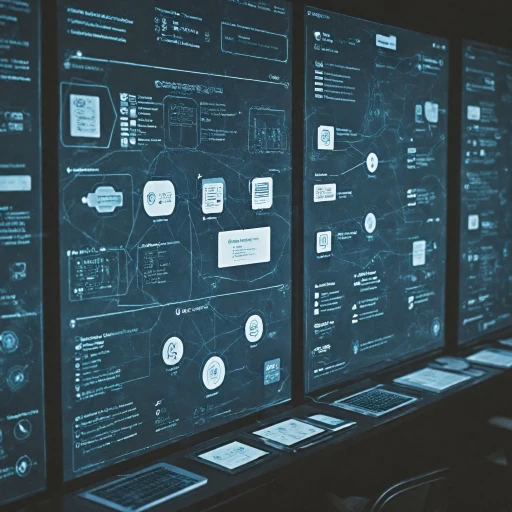
The Basics of a Screening Interview
Delving into the Screening Interview
A screening interview serves as the preliminary step in the hiring process, assisting recruiters in narrowing down a vast pool of candidates to find the best fit for the position. Typically, these interviews occur early in the selection process, often taking the form of phone screenings or video calls to save time and resources. The goal of a screening interview is to identify candidates who meet the basic job requirements and demonstrate a potential cultural fit with the company. This involves asking specific interview questions about a candidate's experience, skills, and future aspirations. A successful screening will determine whether a candidate should progress to more comprehensive interviews. It's essential for hiring managers to tailor their approach to each screening interview, depending on the position and the company's unique work environment. Questions about the candidate's previous roles, understanding of the job description, and expectations regarding salary range can help identify aligned candidates. For companies looking to streamline hiring efforts, integrating technology such as AI can be beneficial. Automated interviews and scheduling tools can enhance the pre-screening process by allowing companies to efficiently assess large volumes of applications. Embracing these technologies helps ensure that recruiters focus their energy on candidates who are more likely to succeed in a second interview. To discover more about effective strategies for sourcing candidates using AI in HR, exploring varied resources can provide valuable insights on optimizing recruitment processes.Key Components of a Screening Interview
Essential Elements to Consider
The screening interview is a pivotal step in the hiring process, serving as an initial touchpoint between a company and potential candidates. It usually consists of a series of pre-screening questions designed to gather fundamental information about a candidate's qualifications and compatibility with the job position. The aim is to efficiently filter out candidates who may not possess the necessary skills or meet the cultural fit of the organization.
Conducting Effective Conversations
One of the key components of a screening interview is determining the best method to conduct it. Traditionally, phone screenings have been a popular choice due to their convenience and ability to quickly assess candidates. Phone interviews allow hiring managers to cover basic qualifications, such as job experience and specific skills. They can also gauge a candidate’s communication abilities and initial impressions of the company.
Defining the Questions
Interview questions play a substantial role in a pre-screening process. These questions often touch upon the candidate's work history, such as previous roles and responsibilities, as well as ascertain their expectations for the new job, including anticipated salary range. It's vital for the screening questions to remain consistent and align with the company's hiring standards. Carefully crafted interview screening questions can reveal a lot about a candidate's potential as well as their expectations regarding cultural fit and work environment.
Scheduling Considerations
Interview scheduling is another critical aspect that affects the efficiency of screening interviews. The hiring manager must consider how best to align interview times with candidates’ availability, ensuring that there is enough time to thoroughly screen each candidate without hampering the overall hiring timeline. An automated interview scheduling system might be useful in this regard, especially for organizations handling a large volume of applications.
Incorporating these key components in your screen interview process enhances the overall efficacy of your recruitment strategy and aligns it with the specific needs of your organization. For startups looking to refine their hiring approach, exploring the best recruiting software could be a decisive step forward.
The Role of AI in Screening Interviews
Integrating AI Tools in the Screening Process
Artificial Intelligence (AI) has become an instrumental player in transforming how companies conduct screening interviews during the recruitment process. Traditionally, these interviews have been time-consuming elements of hiring, often limited to phone screening and in-person assessments. However, the advent of AI-driven solutions is reshaping this landscape.
AI can manage a significant part of pre-screening, which involves evaluating a candidate's qualifications against the requirements of the job position. This technological approach enables recruiters to move beyond manual resume reviews, leveraging algorithms to identify the most suitable candidates quickly. Using AI in screening interviews reduces biases, ensures a more objective assessment process, and speeds up interview scheduling.
Many organizations employ automated interviews as a part of their hiring process, wherein AI platforms evaluate predefined interview questions that assess candidates based on their experience, skills, and cultural fit for the company. These questions can cover specific job skills or gauge potential salary range expectations, ensuring a streamlined approach to ascertain what every candidate brings to the table before proceeding to a more in-depth evaluation.
The use of AI in phone interviews and screening interviews can also optimize the work environment by removing the time-intensive nature of traditional interviews. This allows hiring managers to focus more on personal interactions during second interviews, focusing on the candidates that are already vetted for compatibility and competence through AI systems.
One important aspect to consider is the role of AI in evaluating candidate readiness and commitment, mitigating issues related to job abandonment before hiring. For companies looking to strengthen their hiring process through technological advancements, understanding the impact of AI-driven solutions is crucial.
Benefits of AI-Driven Screening Interviews
Advantages of AI in Screening Interviews
Incorporating artificial intelligence into the screening interview process offers several advantages that can significantly enhance the efficiency and effectiveness of hiring. One of the primary benefits is the ability to streamline hiring by automating repetitive tasks, such as interview scheduling and pre-screening questions. This automation not only saves time but also allows hiring managers to focus on more strategic aspects of the recruitment process.
Efficiency and Consistency
AI-driven screening interviews ensure a consistent experience for all candidates. By using standardized interview questions, companies can maintain a uniform evaluation process, reducing the risk of bias and ensuring that each candidate is assessed fairly. This consistency is crucial in identifying the best fit for the position and the company’s cultural environment.
Enhanced Candidate Experience
AI tools can improve the candidate experience by providing timely feedback and updates throughout the hiring process. Automated interview systems can quickly analyze responses from phone screenings or automated interviews, allowing candidates to move to the next stage without unnecessary delays. This efficiency is particularly beneficial in competitive job markets where top talent is in high demand.
Data-Driven Insights
Another significant advantage of AI in screening interviews is the ability to gather and analyze data effectively. AI systems can evaluate candidate responses to identify patterns and insights that might not be immediately apparent to human interviewers. These insights can inform future hiring decisions and refine the interview process to better align with the company’s goals.
Scalability and Flexibility
AI-driven systems offer scalability, allowing companies to handle large volumes of candidates without compromising the quality of the screening process. This scalability is particularly advantageous for organizations experiencing rapid growth or those with high turnover rates. Additionally, AI systems can be tailored to specific job requirements, ensuring that the screening process is aligned with the unique needs of each position.
While AI offers numerous benefits in the screening interview process, it is essential to consider the challenges and ethical considerations associated with its implementation, which will be discussed in the following section.













